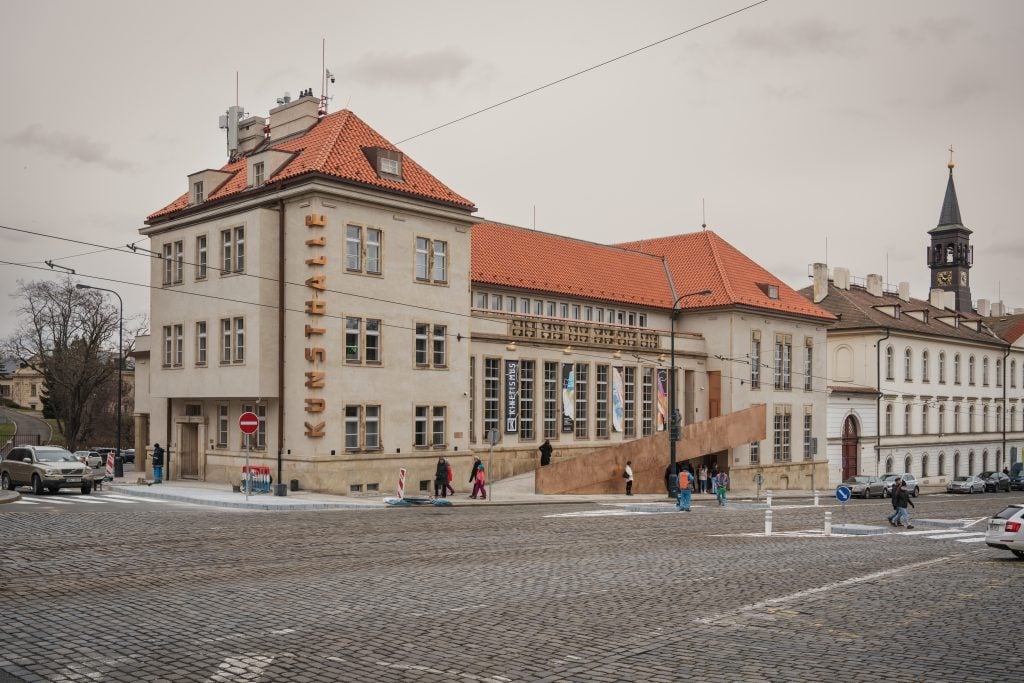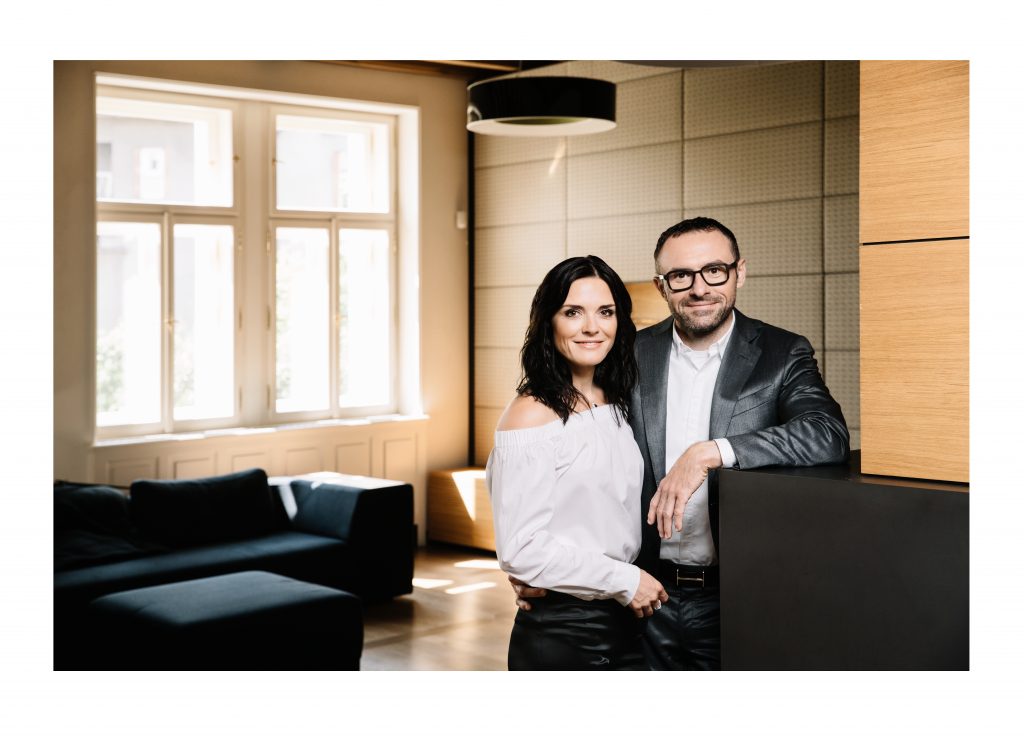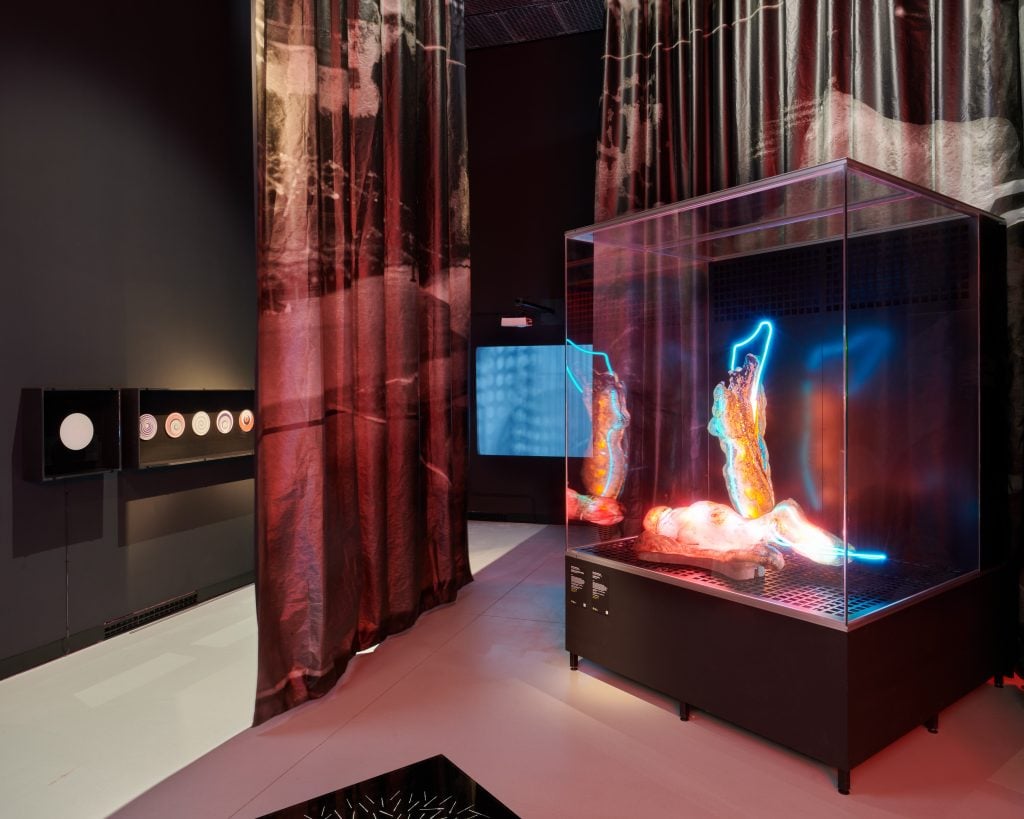Museums & Institutions
Prague Opens the Doors on Its New $40 Million Kunsthalle, Backed by a Prominent Czech Collecting Couple
The Pudil Family Foundation is behind the ambitious project, which just opened in the Czech capital.

The Pudil Family Foundation is behind the ambitious project, which just opened in the Czech capital.

Artnet News

The Kunsthalle Praha, a new nonprofit museum of contemporary art, opened its doors today in a former electrical facility in the center of Prague.
The space plans to focus on Czech and Central European art from the 20th and 21st centuries, though its first show’s lineup is decidedly global.
The group show of contemporary and modern art nods to the history of the museum’s building, an old transformer station. Titled “Kinetismus: 100 Years of Electricity in Art,” the inaugural show includes works by Laszlo Moholy-Nagy, Angela Bulloch, teamLab, and Olafur Eliasson (on view through June 20).
The show comprises a mix of private loans and art from the museum’s own collection, which includes works owned by the museum’s backers, Petr and Pavlína Pudil

Pavlina and Petr Pudil. Photo: Jan Zatorsky
In 2015, Petr Pudil, a real-estate developer, and his wife bought an electrical substation that dates back to the 1930s. The purchase and renovation totaled €35 million ($40 million).
“We’ve had the idea of establishing an art museum in Prague for several years. When the opportunity arose to purchase a building in Prague’s Klárov district, that dream became a reality,” said the Pudils in a joint statement. The Pudils told the Financial Times that they expect the annual running costs to be in the low million euros. The institution plans to cover the costs of programming, which will encompass up to eight exhibitions per year, with revenues from ticket sales (which are €11 for visitors over the age of 26) and membership fees.

View of Kinetismus. Photo: Vojtech Veskrna
The Pudils have an art collection of more than 600 works including those by contemporary artists like Alicja Kwade, Tomás Saraceno, and Lina Lapelyte, as well modern works by artists including Marcel Duchamp and Max Ernst. The collection, which will be integrated into the museum’s programming, is managed under the umbrella of the Pudil Family Foundation.
While the bustling central European capital is home to many emerging artists, the country overall lacks the same public institutional prowess of its neighbors, Austria and Germany. The Kunsthalle Praha aims to add a “new dimension to Prague’s thriving cultural landscape,” said director Ivana Goossen in a statement.
The Kunsthalle also commissioned U.S. conceptual artist Mark Dion to assemble a selection of artifacts culled from the site while it was under renovation. The resulting work, titled Cabinet of Electrical Curiosities, will be on permanent view.
After the exhibition “Kinetismus” closes in June, the Kunsthalle will open a solo exhibition by German artist Gregor Hildebrandt.
“By supporting artists and curators to develop innovative projects, our programs will offer a variety of perspectives on cultural and social issues, connecting artists and audiences and inspiring stimulating conversations,” said Goosen. “We hope that the Kunsthalle will become a well-loved place to experience art in what we consider to be a go-to city for anyone interested in art and culture.”